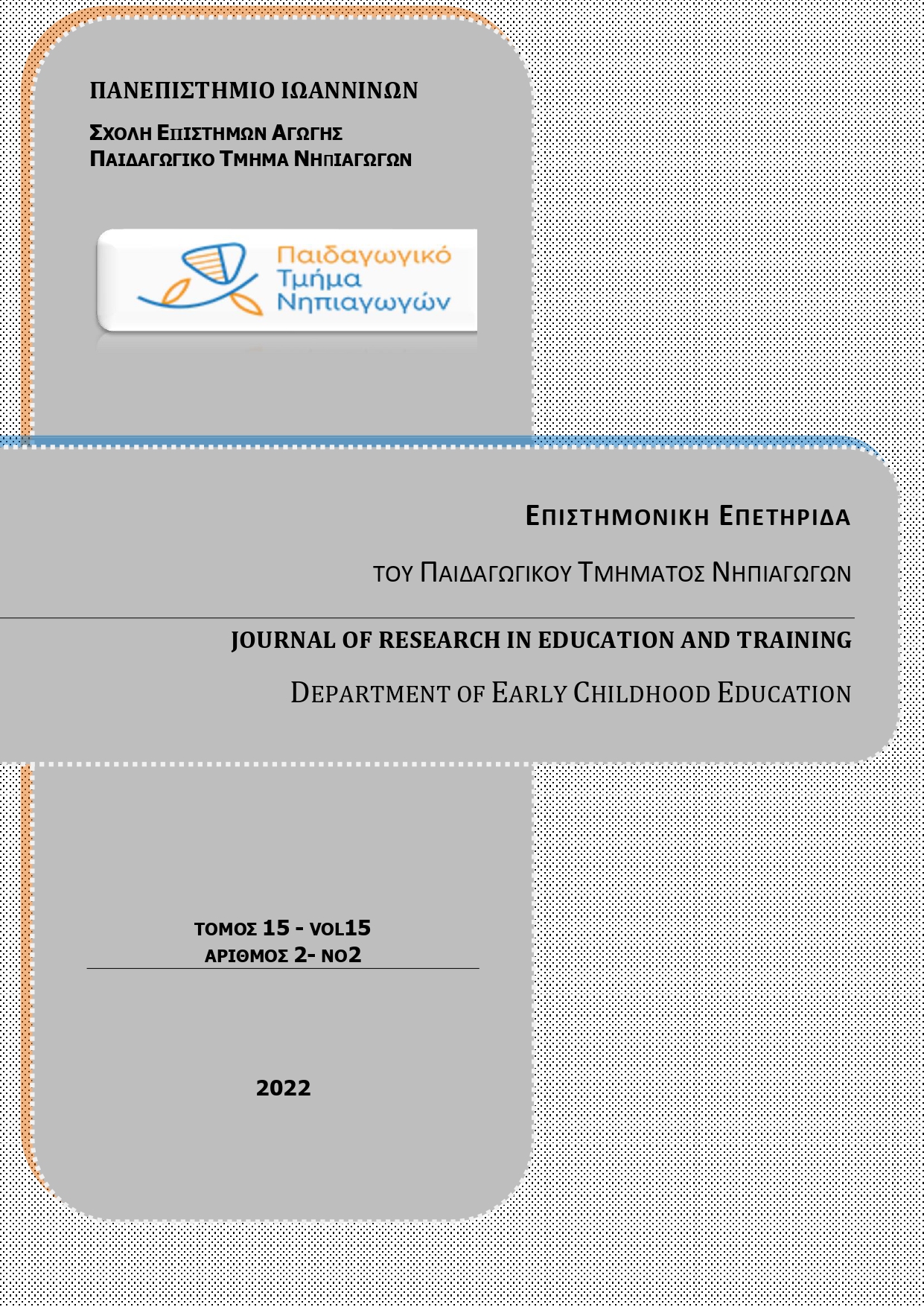Αξιολόγηση της ικανότητας εξαγωγής συμπεράσματος σε παιδιά με Αναπτυξιακή Γλωσσική Διαταραχή πιλοτική μελέτη και προκαταρκτικά συμπεράσματα

Περίληψη
Στόχος της παρούσας μελέτης είναι να εξετάσει εάν τα παιδιά με Αναπτυξιακή Γλωσσική Διαταραχή (ΑΓΔ) έχουν δυσκολίες στην εξαγωγή συμπεράσματος. Στη μελέτη συμμετείχαν τριάντα παιδιά ηλικίας 5.1 – 6.5 ετών, εκ των οποίων τα είκοσι ήταν τυπικής ανάπτυξης και τα δέκα με Αναπτυξιακή Γλωσσική Διαταραχή. Όλα τα παιδιά εξετάστηκαν προ-πειραματικά με σταθμισμένα και μη σταθμισμένα εργαλεία αξιολόγησης γλωσσικών ικανοτήτων. Το κύριο πειραματικό μέρος περιελάμβανε αξιολόγηση εξαγωγής συμπεράσματος, η οποία πραγματοποιούνταν με είκοσι σύντομες ιστορίες πολλαπλής επιλογής. Οι ιστορίες παρουσιάζονταν προφορικά στα παιδιά, τα οποία καλούνταν να επιλέξουν μία από τις τρεις διαθέσιμες απαντήσεις στις ερωτήσεις που τους είχαν τεθεί. Τα αποτελέσματα έδειξαν πως η ομάδα των παιδιών με ΑΓΔ σημείωσε στατιστικά χαμηλότερα ποσοστά επιτυχίας σχεδόν σε όλες τις ιστορίες (εκτός από δύο) σε σχέση με τα τυπικώς αναπτυσσόμενα. Συμπεραίνεται πως τα παιδιά με Αναπτυξιακή Γλωσσική Διαταραχή έχουν δυσκολίες στην εξαγωγή συμπεράσματος, όπως επιβεβαιώνεται και από τη διεθνή βιβλιογραφία. Συζητούνται οι επιπτώσεις για την αξιολόγηση και θεραπευτική παρέμβαση.
Λεπτομέρειες άρθρου
- Πώς να δημιουργήσετε Αναφορές
-
Κεχαγιά Θ., & Τάλλη Ι. (2022). Αξιολόγηση της ικανότητας εξαγωγής συμπεράσματος σε παιδιά με Αναπτυξιακή Γλωσσική Διαταραχή: πιλοτική μελέτη και προκαταρκτικά συμπεράσματα. Επιστημονική Επετηρίδα Παιδαγωγικού Τμήματος Νηπιαγωγών Πανεπιστημίου Ιωαννίνων, 15(2), 23–47. https://doi.org/10.12681/jret.24209
- Τεύχος
- Τόμ. 15 Αρ. 2 (2022):
- Ενότητα
- Άρθρα

Αυτή η εργασία είναι αδειοδοτημένη υπό το CC Αναφορά Δημιουργού – Μη Εμπορική Χρήση – Παρόμοια Διανομή 4.0.
Οι συγγραφείς που δημοσιεύουν σε αυτό το περιοδικό συμφωνούν στους παρακάτω όρους :
1. Οι συγγραφείς διατηρούν τα δικαιώματα πνευματικής ιδιοκτησίας επί των άρθρων τους, χορηγώντας στο περιοδικό το δικαίωμα της πρώτης δημοσίευσης. Άρθρα που δημοσιεύονται στο περιοδικό «Επιστημονική Επετηρίδα του Παιδαγωγικού Τμήματος Νηπιαγωγών της Σχολής Επιστημών Αγωγής του Πανεπιστημίου Ιωαννίνων» διατίθενται με άδεια Creative Commons 4.0, σύμφωνα με την οποία μπορούν να χρησιμοποιούνται ελεύθερα, με αναφορά στο/στη συγγραφέα και στην πρώτη δημοσίευση για μη κερδοσκοπικούς σκοπούς.
2. Οι συγγραφείς μπορούν να συνάπτουν ξεχωριστές, πρόσθετες συμβάσεις και συμφωνίες για την μη αποκλειστική διανομή του δημοσιευμένου στο περιοδικό έργου (π.χ. κατάθεση σε ένα ιδρυματικό αποθετήριο ή δημοσίευση σε ένα βιβλίο), με την αναγνώριση της πρώτης δημοσίευσης σε αυτό περιοδικό.
3. Στους συγγραφείς επιτρέπεται να δημοσιεύσουν την εργασία τους online (κατά προτίμηση σε ιδρυματικά αποθετήρια ή στην ιστοσελίδα τους) πριν και κατά τη διάρκεια της διαδικασίας υποβολής, καθώς αυτό μπορεί να οδηγήσει σε παραγωγικές ανταλλαγές, όπως επίσης και παλαιότερες και ευρύτερες παραπομπές δημοσιευμένων εργασιών (The Effect of Open Access)


